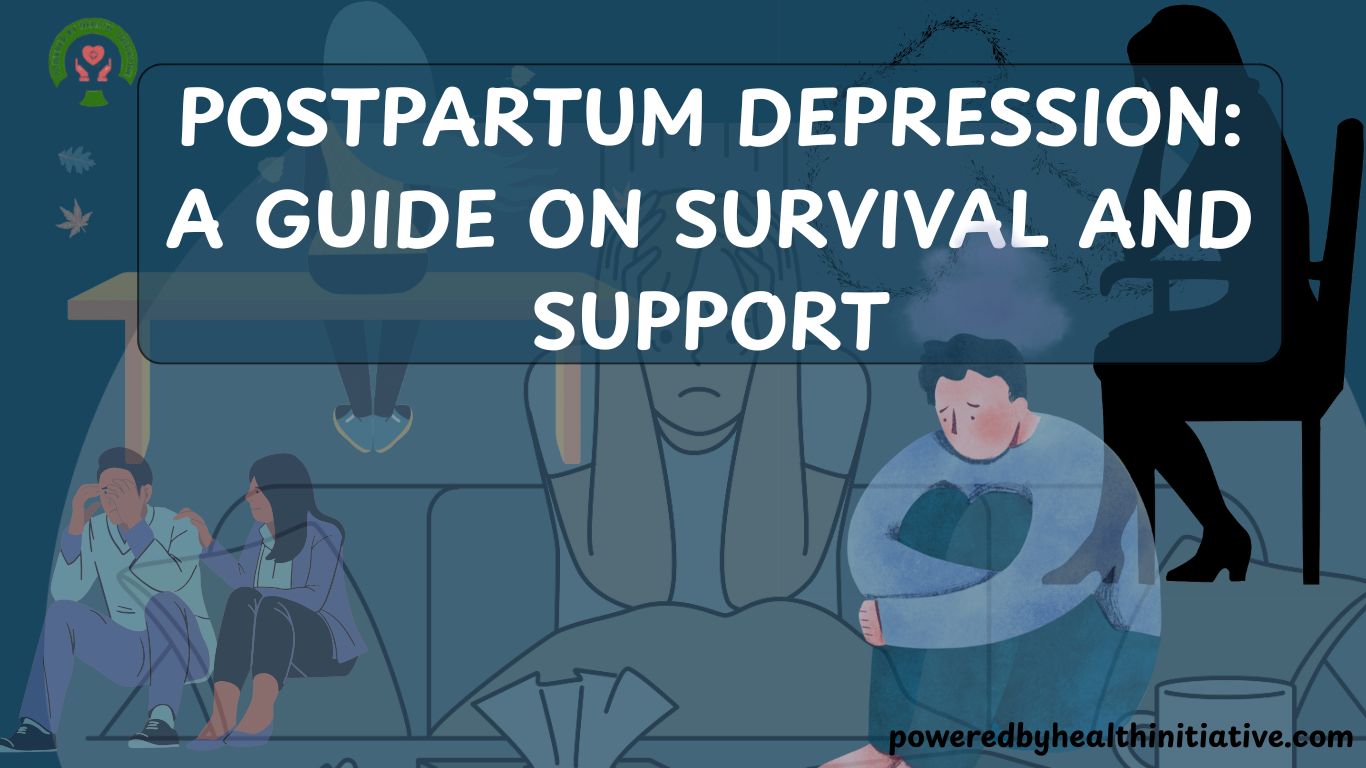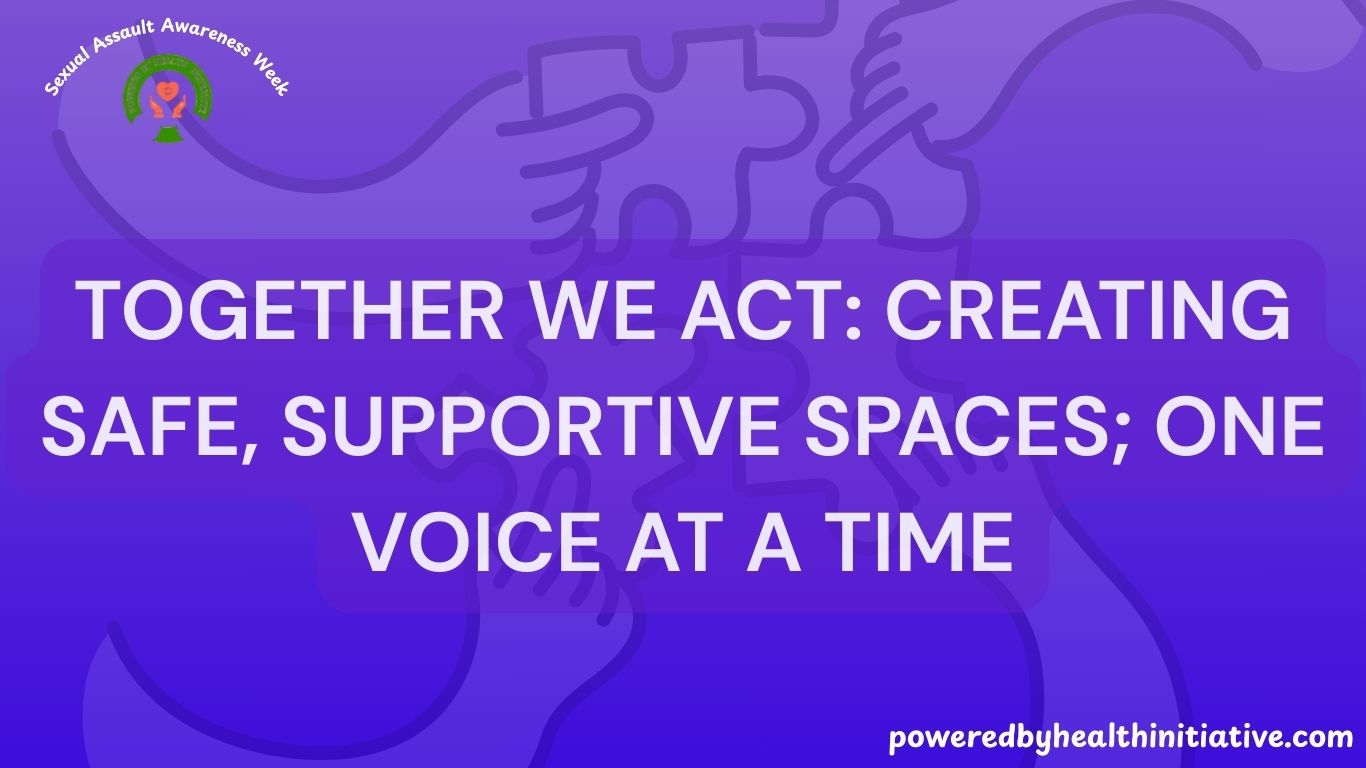The arrival of a new life is typically a momentous occasion, filled with joy, excitement, and love.
It’s a time for celebration, happiness, and merriment, not just for the family, but also for the community.
However, for some mothers, this period can be marred by overwhelming emotions, exhaustion, and unexpected mental health challenges.
Despite being the centre of attention, some new mothers may experience sadness, anxiety, and negative attitudes, which can be perplexing to those around them.
Unfortunately, this can lead to social stigma, with some people labelling them with derogatory names in undeveloped societies.
One of the most significant and often overlooked mental health challenges faced by these new mothers is Postpartum Depression (PPD).
This condition can profoundly impact a mother’s well-being, relationships, and ability to care for her child.
WHAT IS POSTPARTUM DEPRESSION?

Postpartum depression (PPD) is a complex amalgamation of physical, emotional, and behavioural changes experienced by some women following childbirth.
It is a form of depression that can arise when pregnant or within the first year post-delivery.
It can also be described as a mood disorder that occurs in women after childbirth.
Whereas it may be normal to have what is often referred to as the “baby blues” in the first couple of weeks after giving birth (mood swings, crying spells, anxiety, and sleeping problems), PPD is more severe and lasts longer.
Postpartum Depression does not discriminate based on background, age or socioeconomic status and can happen to any new mother.
If you’re a new mom who feels lost, sad, or unworthy, know that you’re not alone and that you aren’t failing.
Postpartum depression is real, it’s quite common in fact, and it’s, most importantly, treatable.
This guide will help you understand what postpartum depression is, how to get through it, and how to get and give support.
Symptoms of Postpartum Depression
- Ongoing sadness, emptiness, or hopelessness
- Continuous crying or crankiness
- Difficulty falling in love with your baby
- Isolation from family and friends
- Not wanting to eat or overeating
- Insomnia or sleeping too much
- Overwhelming fatigue
- State of mind (feelings of worthlessness or guilt)
- Self-harming or harming your baby
- Loss of interest in activities or hobbies
These symptoms can start within the first several weeks following the birth, but can also begin later, sometimes months after giving birth.
Causes of Postpartum Depression
There isn’t one single cause of PPD.
It’s frequently the product of a combination of physical, emotional and hormonal issues.
- Hormonal Shift: After the baby is born, levels of estrogen and progesterone plummet, and this can impact mood.
- Sleep Deprivation: Newborns come with no schedule, and chronic exhaustion has serious effects on the mother.
- Lifestyle Changes: Being suddenly thrust into a new identity, new responsibilities and routines can feel overwhelming.
- Emotional Expectations: Motherhood is idolised in society, so when that experience isn’t what we envisioned, we can feel guilt and shame about it.
It’s vital to remember that PPD can happen to anyone, even those who have had no prior mental health issues, had smooth pregnancies, or who love their new child deeply.
Side Effects of Postpartum Depression
If postpartum depression is not taken care of, there are certain consequences on the total well-being of the mother, which can likely affect her ability to parent.
Some of these side effects include;
- Lack of energy
- She has trouble focusing on her needs and those of the baby
- Moodiness
- Inability to care for the baby
- High suicide risk
Feeling bad about yourself can make depression worse. It is important to seek help if you feel depressed.
Researchers believe postpartum depression in a mother can affect the healthy development of her child, which can cause:
- Delay in language development and learning problems
- Problems with mother-child bonding
- Behaviour problems
- More crying or agitation
- Shorter height and higher risk of obesity in pre-schoolers
- Problems dealing with stress and adjusting to school and other social situations
It will be necessary to have a partner, a friend, or another caregiver who can help take care of the baby while the mother is depressed.
If you are feeling depressed during pregnancy or after having a baby, don’t suffer alone.
Tell a loved one and call your doctor right away.
Always know that you are not alone in this journey.
Perhaps the most damaging myth about postpartum depression is that it means you’re a “bad mum” or that you don’t love your baby.
It could not be further from the truth.
About 1 in 8 women exhibit symptoms of postpartum depression, according to the CDC.
That means millions of women, from all cultures and backgrounds, are experiencing this right now. The best way to heal is to talk about it.
How to Survive Postpartum Depression
Surviving PPD isn’t about “toughing it out.”
It’s about recognising the signs, asking for help, and treating yourself with the same compassion you’d give a friend.
Here are steps to help navigate this difficult time:
- Talk to Someone You Trust

Let someone know how you’re feeling, whether it’s your partner, a friend, a family member, or a fellow mum. Just voicing your emotions can relieve some of the burden. You don’t need to have the “right words.” Just say, “I’m struggling.”
- Seek Professional Help

Therapists, counsellors, and doctors are trained to help you feel better.
Postpartum depression is a medical condition, and it often responds well to treatment such as:
- Talk therapy (psychotherapy) – Working with a professional to understand and manage your feelings.
- Medication – Antidepressants can be effective and safe, even if you’re breastfeeding.
- Support groups – Connecting with others who understand what you’re going through.
If you ever have thoughts of harming yourself or your baby, get help immediately. This is not something to navigate alone.
- Prioritise Rest (As Much As You Can)

Sleep deprivation can worsen depression.
Ask for help with nighttime feedings.
Nap when the baby naps (yes, it’s a cliché, but it matters).
I remember when I was bearing children and my mum was with me for the first three months, she would tell me, “Once the baby is sleeping, you should be sleeping”
Don’t be afraid to set boundaries, your mental health is just as important as your baby’s needs.
- Nourish Your Body

Eat nourishing meals, enough fruits and vegetables, drink water, and get some fresh air.
These small physical acts have a big mental impact.
Don’t strive for perfection; take one small step at a time.
- Lower the Bar

Your house doesn’t need to be spotless.
You don’t need to return every text or make every paediatrician appointment solo.
It’s okay to say no. It’s alright to ask for help.
Let go of the pressure to be a “supermom”; you already are enough.
- Look before you leap

Don’t make any major life changes right after giving birth.
More major life changes, in addition to a new baby, can cause unnecessary stress.
Sometimes big changes can’t be avoided.
When that happens, try to arrange support and help in your new situation beforehand.
Suggestions for partners, family, and friends to offer support
If you know someone who is experiencing postpartum depression, your sensitivity can make a world of difference.
Here’s how to be present in a meaningful way
- Listen Without Judgment

And unless asked, do not offer quick fixes or advice.
Sometimes, the best thing we can say is, “I’m here. I love you. This isn’t your fault.”
- Help Practically

- Cook meals
- Hold the baby while mum naps
- Do the dishes
- Accompany her to appointments
- Work the night shift every so often
Those little things are gigantic in a mum’s healing process.
- Encourage Professional Help

Lightly suggest therapy or medical help. Offer to help find a provider or accompany her.
Normalise asking for help, it’s not a weakness, it’s a strength.
Keep checking in, PPD can be isolating.
But even if she says she’s OK, continue to reach out. Your steady presence is a gift.
Paternal and Partner Postpartum Depression

And while our culture tends to centre on mothers, postpartum depression can manifest in fathers and non-birthing partners, too.
Emotional fatigue, changing family dynamics, financial pressure and sleep deprivation can wear on you.
Some of these solutions apply directly to partners.
If you’re a partner experiencing mental health issues following the birth of a child, you deserve support, too.
Healing is POSSIBLE.
Postpartum depression doesn’t last forever, even if it feels that way right now.
Over time, and with tender support, the fog lifts. You will laugh again.
It may not look like it, but very soon you will feel joy with your baby.
You will feel like yourself again, or a new, empowered version of yourself.
Final Thoughts
Postpartum depression is not a personal failure or a sign of weakness.
Instead, it’s a common health condition that affects millions of strong, capable, and loving mothers worldwide.
By speaking openly and honestly about PPD, we can break the cycle of silence and shame that often surrounds it.
The more we talk, share our experiences, and support one another, the more we can heal and recover together.
Whether you’re navigating the challenges of PPD yourself or supporting a loved one through this journey, know that you’re not alone.
There is help available, there is hope for recovery, and there is a community of people who care and understand.
By acknowledging PPD as a legitimate health condition, we can work together to create a supportive environment that fosters healing, growth, and resilience.
RESOURCES
If you or someone you know is dealing with PPD, here are some organisations that can help:
Postpartum Support International (PSI): Offers free online support groups, local provider directories, and helplines.
Postpartum Support Network Africa: Working to raise awareness about perinatal mood and anxiety disorders in Africa
SAMHSA’s National Helpline – 1-800-662-HELP (4357): Free, confidential 24/7 treatment referral.
The Blue Dot Project: Spreads awareness and advocacy for maternal mental health.
REFERENCES
Centers for Disease Control and Prevention, Division of Reproductive Health. (2020). Pregnancy Risk Assessment Monitoring System (PRAMS). Washington, DC: Centres for Disease Control and Prevention. Retrieved from here.
Schiller, C.E., Meltzer-Brody, S., Rubinow, D.R. (2014). The Role of Reproductive Hormones in Postpartum Depression. CNS Spectrums; 20(1): 48–59.
Sit, D.K., Wisner, K.L. (2009). The Identification of Postpartum Depression. Clinical Obstetrics and Gynaecology; 52(3): 456–468.
U.S. Preventive Services Task Force. (2016). Depression in Adults: Screening.
Alhusen, J.L., Alvarez, C. (2016). Perinatal depression. The Nurse Practitioner; 41(5): 50–55.
U.S. Food and Drug Administration. (2019). FDA approves first treatment for post-partum depression.
Stein, A., Perason, R.M., Goodman, S.H., Rapa, E., Rahman, A., McCallum, M., et al. (2014). Effects of perinatal mental disorders on the fetus and child. Lancet; 384(9956): 1800–1819.
Surkan, P.J., Ettinger, A.K., Hock, R.S., Ahmed, S., Strobino, D.M., Minkovitz, C.S. (2014). Early maternal depressive symptoms and child growth trajectories: a longitudinal analysis of a nationally representative US birth cohort. BMC Paediatrics; 14: 185.
Benton, P.M., Skouteris, H., Hayden, M. (2015). Does maternal psychopathology increase the risk of preschool obesity? A systematic review. Appetite; 87(1): 259–282.
Korhonen, M., Luoma, I., Salmelin, R., Tamminen, T. (2014). Maternal depressive symptoms: Associations with adolescents’ internalising and externalising problems and social competence. Nordic Journal of Psychiatry; 68(5): 323–332
Favour Okereke, Postpartum Depression: A guide for Africa Women; Freelancer, Health Writer.





Leave A Comment